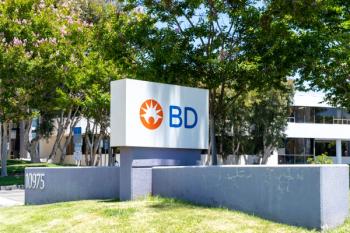
- March 2024
- Volume 01
- Issue 03
- Pages: 46–47
Pittcon 2024: 75 Years of Analytical Science
This year’s conference highlighted how analytical scientists are exchanging research to tackle some of the world’s most critical problems.
This year’s conference highlighted how analytical scientists are exchanging research to tackle some of the world’s most critical problems.
When Omowunmi Sadik, distinguished professor and chair at the New Jersey Institute of Technology, took the stage for her Wallace H. Coulter Lecture at Pittcon 2024 in San Diego, California, she asked the audience how many of them were working on solving complex problems related to per- and polyfluoroalkyl substances (PFAS).
While Sadik didn’t get a count, there’s a good chance that many of the scientists who traveled to this year’s Pittcon are at least thinking about the lasting impacts that forever chemicals will have on the environment and human health over the next decade.
The questions surrounding PFAS for analytical scientists, in particular, are interesting, Sadik said. After all, it was chemists who figured out that the carbon-fluorine bond was one of the strongest found in nature—making it ideal for many uses from nonstick cookware to cleaning products and food packaging. Now scientists are tirelessly working together to find alternatives to, and better tests for, these same chemicals. A quick glance at the technical program indicates that more than 20 of the sessions at the conference this year were about PFAS. One of the final symposiums of the week, “Sustainability and Regulations in the Environmental Lab,” brought together experts from Cofience, Indorama Ventures, MilliporeSigma, and PerkinElmer to provide a survey of how the industry side of analytical science is tackling the issue.
Pittcon has always been about connecting scientists from all over the world and facilitating an exchange of research—particularly when it comes to the most pressing issues impacting our world, such as PFAS. This year speakers also covered forensic analysis, artificial intelligence, biopharmaceuticals, and much more. The conference celebrated its 75th anniversary with the 2024 edition, and many attendees reminisced about Pittcon’s past—fondly remembering nights out celebrating at the Pittcon party or awards lectures recognizing colleagues.
Pittcon is a special time for LCGC International. During an award symposium at the conference, the editors of LCGC present the Lifetime Achievement in Chromatography Award and the Emerging Leader in Chromatography Award. These annual awards recognize the outstanding achievements of two career chromatographers. This year, Lifetime Achievement Winner Wolfgang Lindner and Emerging Leader Martina Catani organized an awards lecture featuring lectures on chiral stationary phases, untargeted chemical analysis, and more.
Lindner’s poignant sit-down with LCGC headlines the must-watch interviews that will be featured on the LCGC International website in the coming days.
“I am now 80. Now, the question is, how much time do I still have?” Lindner said. “My way is satisfaction, just like the song by the [Rolling] Stones... It’s a big opportunity to go to Pittcon and see friends, and also let others see me—what is behind the Lindner column, what person is behind that?”
Other award winners include Susan Olesik, of The Ohio State University, who took home the Dal Nogare Award and Tom Linz, of Wayne State University, who won the Satinder Ahuja Award for Young Investigators in Separation Science (interviews with both Olesik and Linz, as well as Sadik and Catani, will be among the videos to watch for in the days ahead.). Philip J. Wyatt, the founder of Wyatt Technology, won the Pittcon Heritage Award.
Scientists working in industry and academia around the world shared their knowledge in posters, lectures, and networking sessions. Alyssa Sanchez, a PhD student at Florida International University, spoke about tracking the decomposition kinetics for the geographic profiling of heroin. Perry Wang from the U.S. FDA chaired a session on high-throughput analysis in the pharmaceutical sector using liquid chromatography–mass spectrometry (LC–MS). For more coverage, visit the LCGC International website.
Articles in this issue
almost 2 years ago
The Gradient Delay Volume, Part III: Practice – Effects on Throughputalmost 2 years ago
From Detector to Decision, Part IV: Demystifying Peak Integrationalmost 2 years ago
An Efficient Procedure for Determining Simple Sugars in Fruit Juicesalmost 2 years ago
Vol 1 No 3 LCGC International March 2024 North America PDFNewsletter
Join the global community of analytical scientists who trust LCGC for insights on the latest techniques, trends, and expert solutions in chromatography.




